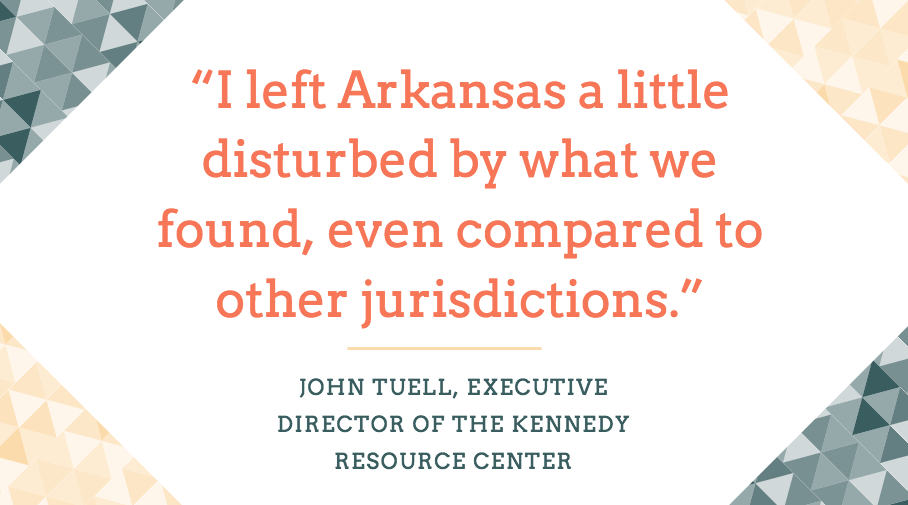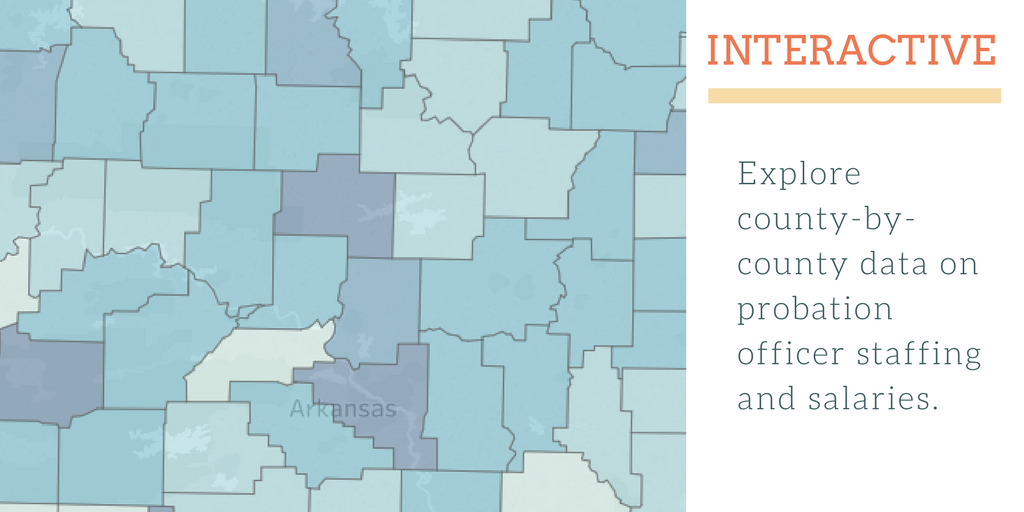
BY AMANDA CLAIRE CURCIO and GINNY MONK / Arkansas Democrat-Gazette
Children entrenched in Arkansas' juvenile probation system often find themselves without needed help because of overworked officers and judges who won't change the way they handle cases.
That's the assessment of a 2016 report commissioned by the Arkansas Administrative Office of the Courts to study the state's juvenile probation system.
The patchwork probation system is "devoid of any standards," the consultants wrote in their report.
A lack of a unified court system and poor funding contribute to disparities in how children and families are treated, according to the study and the Arkansas Democrat-Gazette's own reporting.
Juvenile probation comes into play after a child commits an offense and enters a guilty plea or is found guilty in court. Sometimes, a judge will order the child to go through months of probation instead of serving jail time. Probation is also used after a child gets out of a lockup.

Arkansas schools accused of using youth court as discipline |
In southeast Arkansas, school officials threatened to withdraw money for juvenile probation officers’ salaries as leverage for desired outcomes in juvenile court cases, a report found.
The 10th Judicial Circuit — Ashley, Bradley, Chicot, Desha and Drew counties — doesn’t have enough money to pay the officers, so school districts chip in.
Some schools pushed officers to arrest kids and have judges sentence them for the sake of convenience, according to the report by the Robert F. Kennedy National Resource Center for Juvenile Justice.


SE corner of state at a loss, with little to offer at-risk kids |
No one in power cares what happens to kids in Eudora.
That's what Sam and Marion Jones are afraid of -- that when all is said and done, their son won't be able to get the help he needs, because he was born in a forgotten corner of the state.
Eudora, a part of the 10th Judicial Circuit in Chicot County, is 8 miles from the Louisiana border and has just over 2,000 people. Nearly half of them live in poverty.
There's nothing for kids to do after school. No Scouts. No Boys & Girls Club. No Four-H Club program. Nothing, the Joneses say.

Juvenile justice overhaul in Arkansas a work in progress |
Arkansas' patchwork juvenile probation system needs an overhaul to treat children in the system more equitably, says a group of judges and youth advocates.
Where a child lives affects that child's experience while on probation because individual judges decide how to run probation in their courts.
Efforts are underway in at least 18 of the state's 75 counties to improve probation and the overall juvenile justice system, according to officials.
Rather than punish kids for wrongdoing, juvenile court judges in some of those counties use probation as a way to connect youths with community services. The goal is to reduce the number of children in detention and to keep them out of court.

| 

